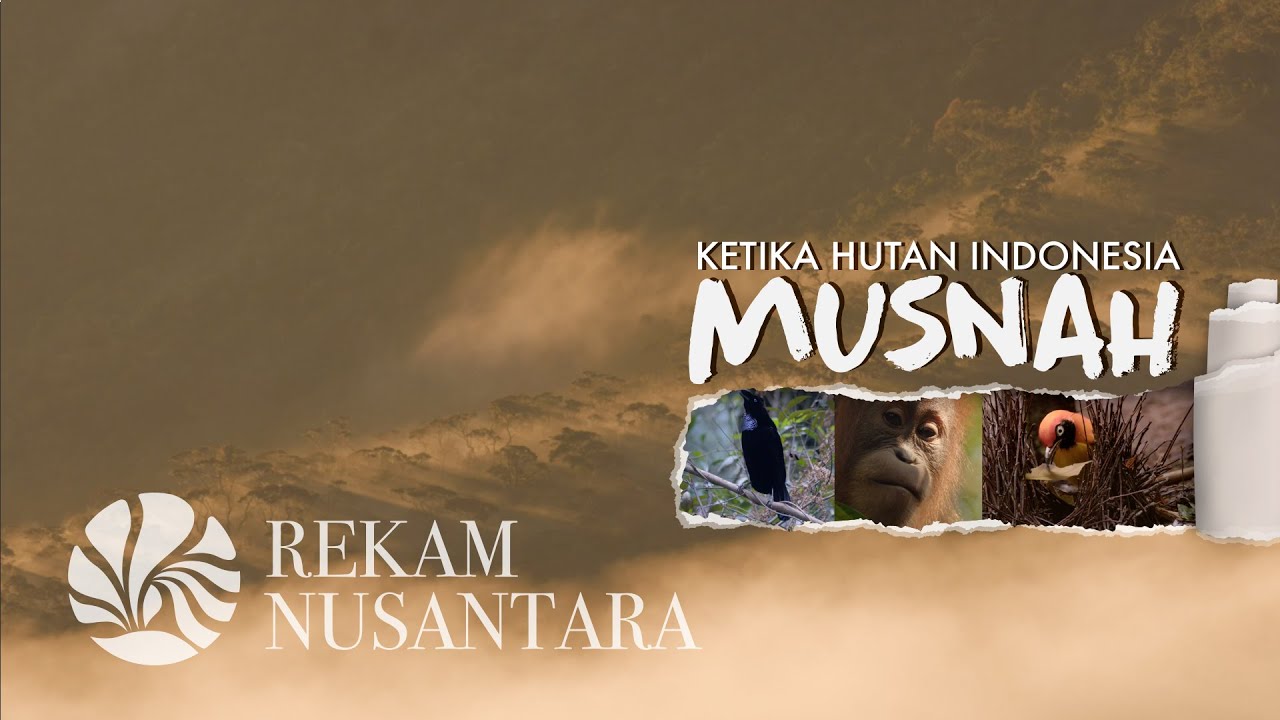Earth Focus Episode 41 - Biodiversity and Health
Summary
TLDRThis Earth Focus segment delves into the alarming loss of biodiversity and its potential impacts on human health and survival. With species disappearing at an unprecedented rate, largely due to habitat destruction and climate change, the video highlights the importance of biodiversity for food, medicine, and ecosystem stability. It explores how nature’s intricacies, such as the healing properties of plants and animals, could hold the key to life-saving medical breakthroughs. The video urges immediate action to protect Earth's ecosystems before the loss becomes irreversible, stressing that human survival is intricately linked to the survival of other species.
Takeaways
- 😀 Biodiversity is the variety of life on Earth, including plants, animals, and microorganisms, forming an interconnected system where each species depends on the other.
- 🌍 Human actions, like habitat destruction and climate change, are pushing ecosystems to their limits, threatening human survival and biodiversity.
- ⚡ Species loss today is happening at an unprecedented rate, similar to past mass extinction events, but driven by human activities.
- 🦑 The ocean remains largely unexplored, with many species still unidentified, including potentially millions of microbial species yet to be studied.
- 🌱 Biodiversity is not just about individual species; its loss affects ecosystems' ability to provide essential services like food, clean water, and climate regulation.
- 🌡️ Climate change exacerbates the threat to species, with a third of all land-based species at risk of extinction by the end of the century.
- 🌊 Coral reefs are at risk due to carbon dioxide emissions, causing warming and acidification, which endangers marine species and disrupts ecosystems.
- 💊 Biodiversity plays a crucial role in medicine, with many life-saving drugs originating from natural sources like plants, animals, and microorganisms.
- 🐸 Amphibians, due to their sensitivity to environmental changes, are among the most threatened species, and their decline could jeopardize new antibiotics and medical research.
- 🐻 Polar bears offer insights into preventing diseases like osteoporosis and diabetes, demonstrating the medical potential of studying animal physiology in the wild.
Q & A
What is biodiversity and why is it important?
-Biodiversity refers to the variety of life on Earth, including species of plants, animals, and microorganisms, and the ecosystems they inhabit. It is crucial for maintaining ecological balance, supporting food, water, and air purification, and offering cultural, spiritual, and medicinal value to humans.
What are the main drivers behind the current biodiversity crisis?
-The main factors driving the loss of biodiversity are habitat destruction, overexploitation of natural resources, pollution, and climate change. Human activities, such as deforestation, overfishing, and unsustainable agricultural practices, are significantly contributing to species extinction.
How is the rate of species extinction today compared to past mass extinctions?
-The current rate of species loss is unprecedented and is comparable to the mass extinction events in Earth's history, such as the one that wiped out the dinosaurs. Today, the extinction rate is about 100 to 1,000 times higher than it was before humans existed.
What impact is climate change having on biodiversity?
-Climate change is causing shifts in habitats and disrupting ecosystems. As temperatures rise, species are forced to migrate toward cooler areas, often towards the poles, which disrupts their natural habitats. The warming and acidification of oceans are also leading to coral bleaching and the decline of marine life.
Why are rainforests and coral reefs so important for biodiversity?
-Rainforests and coral reefs are home to a vast majority of the world's species. They provide essential habitats for countless plants and animals and play key roles in regulating climate, water cycles, and providing food, medicine, and cultural benefits.
How does biodiversity impact human health, particularly in medicine?
-Biodiversity has greatly contributed to medicine, with many life-saving drugs derived from plants, animals, and microorganisms. Examples include the use of compounds from plants like the periwinkle and trees in the Amazon, which have led to treatments for diseases like cancer, malaria, and heart disease.
What are some examples of medicines inspired by biodiversity?
-Several medicines are inspired by nature, such as the anti-cancer drug derived from the Madagascar periwinkle, the painkiller morphine from the opium poppy, and quinine from the bark of a tree in the Amazon rainforest. Even common drugs like statins and insulin are based on natural compounds.
How do amphibians contribute to medical research?
-Amphibians, particularly frogs, are valuable in medical research due to their unique biology, such as their ability to regenerate tissue and resist infections. Their compounds are being investigated for new antibiotics and treatments for conditions like HIV, AIDS, and antibiotic resistance.
What is the significance of polar bears in the study of human health?
-Polar bears provide valuable insights into human health, particularly in the areas of osteoporosis and kidney failure. Their ability to prevent bone loss during hibernation and avoid kidney toxicity without urinating for extended periods could inform treatments for these conditions in humans.
What can be done to prevent the loss of biodiversity and protect ecosystems?
-To prevent further loss of biodiversity, it is essential to protect habitats, reduce pollution, and combat climate change. Sustainable practices in agriculture, forestry, and fishing, along with conservation efforts, are vital to preserving ecosystems. Public awareness and immediate action are crucial to mitigate the damage.
Outlines

This section is available to paid users only. Please upgrade to access this part.
Upgrade NowMindmap

This section is available to paid users only. Please upgrade to access this part.
Upgrade NowKeywords

This section is available to paid users only. Please upgrade to access this part.
Upgrade NowHighlights

This section is available to paid users only. Please upgrade to access this part.
Upgrade NowTranscripts

This section is available to paid users only. Please upgrade to access this part.
Upgrade NowBrowse More Related Video

Why Is Biodiversity Important To Ecosystems?

PERUBAHAN PERMUKAAN BUMI - BUMIKU SAYANG BUMIKU MALANG

Dharmanandan - Biodiversity loss,its past and current trends and its impact

#NusantaraKaya | Ketika Hutan Indonesia Musnah

Posible bang ma-reverse ang epekto ng climate change? | Need to Know

What is Biodiversity?
5.0 / 5 (0 votes)